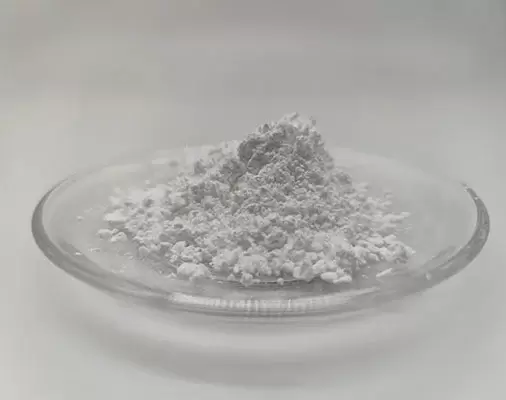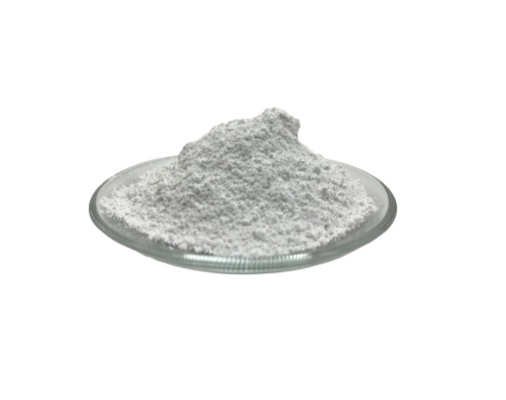Nicotinamide: A Multifunctional Skincare Ingredient
Nicotinamide, or Niacinamide, is a water-soluble form of vitamin B3 that has become a key ingredient in dermatological and cosmetic formulations. Its clinical benefits extend beyond basic moisturization ——it regulates sebum production, strengthens the skin barrier, and suppresses inflammation, making it particularly effective for acne-prone and oily skin.
By influencing lipid metabolism and cellular signaling, Nicotinamide addresses multiple pathways involved in acne pathogenesis, offering a safe and stable alternative to antibiotic-based treatments. Viablife, a high quality cosmetic raw materials manufacturer, will share the advantages of nicotinamide powder in cosmetics, which can effectively control oil, etc.
Mechanisms of Nicotinamide in Acne Management

Acne is driven by excessive sebum secretion, *Cutibacterium acnes* proliferation, follicular blockage, and inflammation. Nicotinamide acts on several of these mechanisms simultaneously:
1. Sebum Regulation
Nicotinamide reduces fatty acid and triglyceride synthesis in sebocytes, leading to decreased oiliness and smaller pore appearance. This limits the lipid-rich environment that supports *C. acnes* growth.
2. Anti-Inflammatory Action
It suppresses pro-inflammatory cytokines such as IL-8 and TNF-α, effectively minimizing papules and pustules while improving overall skin comfort.
3. Barrier Strengthening
Nicotinamide enhances the synthesis of ceramides and other barrier lipids, maintaining hydration and resilience while reducing irritation.
These combined effects result in clearer, less oily, and more balanced skin without compromising the skin' s natural defense mechanisms.
Clinical Evaluation: Nicotinamide vs. Clindamycin
A controlled clinical trial compared 4% Nicotinamide with 1% clindamycin in acne-prone subjects. After eight weeks:

* 82% of participants using Nicotinamide showed overall improvement.
* Acne severity was reduced by 32% at four weeks, with a 60% reduction in inflammatory acne by week eight.
* Results were comparable to clindamycin, which showed 68% improvement and 43% reduction in inflammatory lesions.
These findings confirm that Nicotinamide provides similar efficacy to topical antibiotics while avoiding antibiotic dependency and microbial resistance. Its broad tolerability also allows long-term use without irritation or rebound effects.
Nicotinamide and Post-Acne Recovery
Nicotinamide extends its benefits beyond active acne treatment by supporting post-inflammatory repair. It helps reduce hyperpigmentation by inhibiting melanosome transfer from melanocytes to keratinocytes, leading to a more even complexion and reduced dark spots.
Moreover, its antioxidative activity neutralizes reactive oxygen species generated during inflammation, protecting skin cells and promoting smoother texture. By accelerating epidermal renewal, Nicotinamide also aids in the resolution of microcomedones and non-inflammatory lesions.
Advantages of Nicotinamide for Acne-Prone and Oily Skin
Unlike antibiotic agents such as clindamycin, Nicotinamide exerts its acne-suppressing effects through biochemical modulation rather than bacterial eradication. This unique mechanism minimizes the risk of antibiotic resistance and supports sustainable, long-term acne care.
Additional advantages include:
* Excellent safety profile: Suitable for sensitive or compromised skin.
* Non-photosensitizing: Can be used alongside other active ingredients or during daytime routines.
* Formulation flexibility: Stable in a range of pH environments and compatible with zinc, salicylic acid, and hyaluronic acid.
These attributes make Nicotinamide a preferred choice for formulators seeking efficacy without the drawbacks of antibiotics or harsh chemical treatments.
Optimizing Nicotinamide Concentrations in Formulations
For clinical efficacy, concentrations between 2–5% are most effective, with 4% supported by extensive research. Maintaining the formulation pH around 5–6 helps preserve Nicotinamide' s stability and minimize conversion to nicotinic acid, which may cause transient flushing.
Nicotinamide' s Role in Comprehensive Acne Suppression
By addressing both inflammatory and non-inflammatory lesions, Nicotinamide provides a dual approach to acne suppression. It reduces follicular blockage, controls sebum, and alleviates inflammation, ultimately preventing the cascade that leads to pustule and cyst formation.
Its ability to modulate multiple biological processes also supports preventive care. When used regularly, Nicotinamide helps maintain long-term sebum balance and reduces recurrence of acne flare-ups, establishing it as both a corrective and preventive skincare ingredient.
Conclusion
Nicotinamide offers a scientifically supported, multifunctional solution for managing acne and oily skin. Through sebum regulation, inflammation control, and barrier reinforcement, it delivers clinical results comparable to topical antibiotics such as clindamycin - without contributing to antibiotic resistance. Its additional roles in reducing hyperpigmentation and supporting post-acne recovery make Nicotinamide one of the most versatile and well-tolerated actives in modern dermocosmetic formulations.





 Leave a Message
Leave a Message